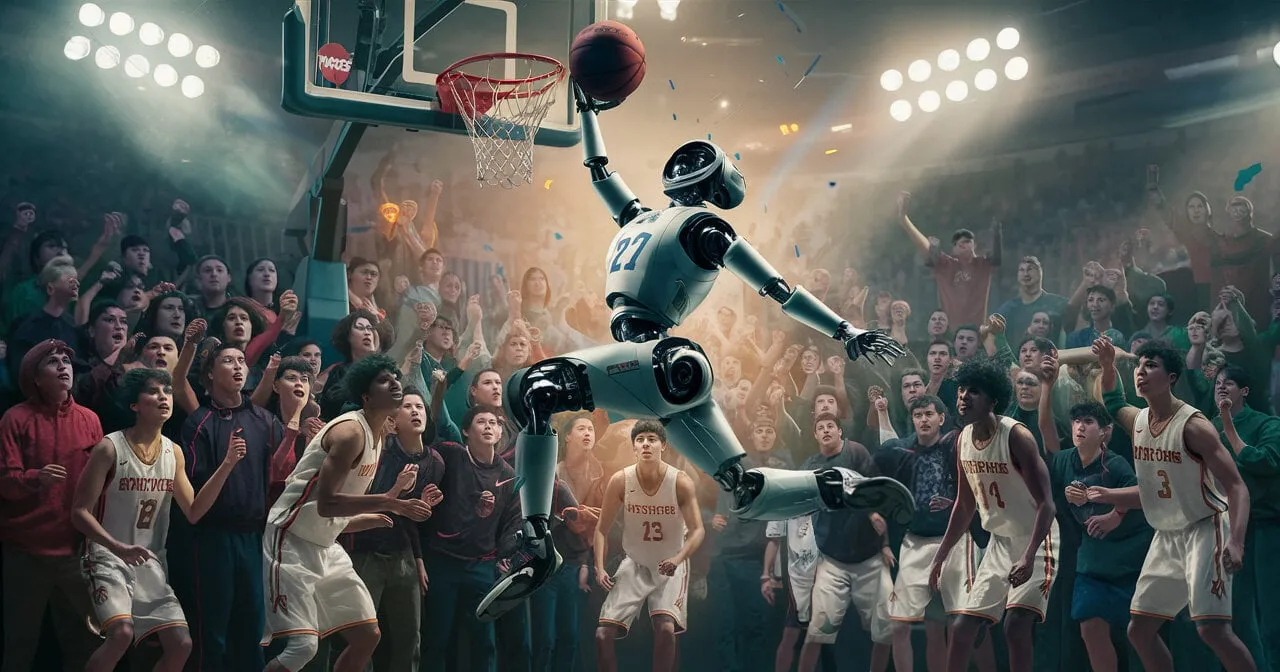
AI’s March Madness Predictions: Bracket Busted After Day One
- by dgihost.com
March Madness predictions have long captivated sports enthusiasts, offering an exciting glimpse into the unpredictable world of college basketball. With the odds stacked against even the most seasoned analysts, the emergence of artificial intelligence promised a new frontier in bracketology.
As the NCAA men’s basketball tournament unfolded, the spotlight turned to AI’s role in forecasting game outcomes. While humans grappled with the complexity of analyzing countless variables, AI algorithms seemed poised to offer a more calculated approach to predicting March Madness winners.
Against the backdrop of astronomical odds—1 in 9.2 quintillion for a perfect bracket—AI stepped into the arena, armed with sophisticated machine learning models and vast datasets. Google, a frontrunner in AI research, had been at the forefront of leveraging technology to dissect NCAA basketball data, providing insights into game performance metrics and player statistics.
In the quest to predict March Madness winners, AI algorithms processed reams of data, offering unique perspectives on game outcomes. One such AI, the “March Madness Bracket Buster Bot,” showcased a statistical analysis behind its predictions, aiming to unravel the complexities of college basketball matchups.
However, despite the advancements in AI technology, the unpredictability of March Madness prevailed. As the tournament kicked off, AI’s bracket quickly succumbed to the chaos of upsets and surprise victories. The bracket, meticulously crafted by algorithms, was busted after day one, underscoring the challenges of forecasting sports outcomes.
While AI provided valuable insights and alternative perspectives, it ultimately fell short in capturing the essence of March Madness—the underdog stories, stunning upsets, and unforeseen variables that define the tournament. The defeat of BYU, a favorite pick by AI models, highlighted the resilience of underdog teams and the inherent unpredictability of college basketball.
Beyond AI’s bracket bust, other machine learning models and methodologies offered diverse predictions, reflecting the multifaceted nature of sports forecasting. From Kaggle competitions to personalized bracket simulations, data scientists explored different approaches to predicting tournament outcomes.
Yet, amidst the quest for predictive accuracy, one truth remained evident: sports defy certainty. No model or methodology can account for the extraordinary circumstances that unfold on the court—the momentum shifts, the emotional highs and lows, and the moments of sheer brilliance that shape March Madness.
In the end, AI’s foray into March Madness predictions serves as a reminder of the inherent unpredictability of sports. While algorithms may unravel patterns hidden to the human eye, they ultimately fall short in capturing the essence of athletic competition. As the tournament unfolds, fans embrace the uncertainty, knowing that in March Madness, anything can happen on the road to victory.
March Madness predictions have long captivated sports enthusiasts, offering an exciting glimpse into the unpredictable world of college basketball. With the odds stacked against even the most seasoned analysts, the emergence of artificial intelligence promised a new frontier in bracketology. As the NCAA men’s basketball tournament unfolded, the spotlight turned to AI’s role in forecasting…